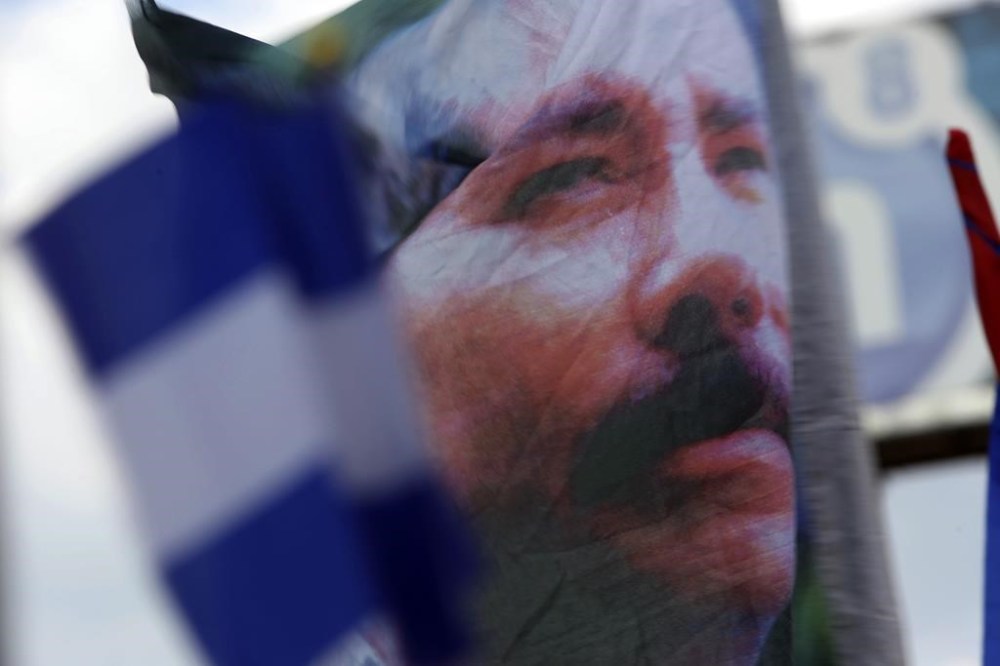US cancels visas of 100 more Nicaraguan officials for their role in ‘undermining democracy’
Advertisement
Read this article for free:
or
Already have an account? Log in here »
To continue reading, please subscribe:
Monthly Digital Subscription
$0 for the first 4 weeks*
- Enjoy unlimited reading on winnipegfreepress.com
- Read the E-Edition, our digital replica newspaper
- Access News Break, our award-winning app
- Play interactive puzzles
*No charge for 4 weeks then price increases to the regular rate of $19.00 plus GST every four weeks. Offer available to new and qualified returning subscribers only. Cancel any time.
Monthly Digital Subscription
$4.75/week*
- Enjoy unlimited reading on winnipegfreepress.com
- Read the E-Edition, our digital replica newspaper
- Access News Break, our award-winning app
- Play interactive puzzles
*Billed as $19 plus GST every four weeks. Cancel any time.
To continue reading, please subscribe:
Add Free Press access to your Brandon Sun subscription for only an additional
$1 for the first 4 weeks*
*Your next subscription payment will increase by $1.00 and you will be charged $16.99 plus GST for four weeks. After four weeks, your payment will increase to $23.99 plus GST every four weeks.
Read unlimited articles for free today:
or
Already have an account? Log in here »
Hey there, time traveller!
This article was published 19/08/2023 (814 days ago), so information in it may no longer be current.
MEXICO CITY (AP) — The U.S. State Department on Saturday imposed visa restrictions on 100 more Nicaraguan officials for their role in supporting the regime of President Daniel Ortega.
Secretary of State Antony Blinken wrote in his social media accounts that his office “has taken steps to impose visa restrictions on 100 Nicaraguan officials who restrict Nicaraguans’ human rights and undermine democracy.”
“We call on the regime to unconditionally and immediately release Bishop Álvarez and all those unjustly detained,” Blinken wrote.

Bishop Rolando Álvarez, an outspoken critic of the Nicaraguan government, was jailed by the Ortega regime for supposedly helping anti-government protesters. He was sentenced to 26 years in prison, after he refused to board a plane carrying exiles to the United States in February.
Ortega jailed dozens of opposition figures in order to win a fourth consecutive term in 2021 elections that were broadly criticized as a farce. He has also outlawed dozens of nongovernmental organizations.
Since then, dozens of opponents have been tried or convicted in brief trials on vague charges equivalent to treason.
The State Department had previously pulled the visas of top Nicaraguan officials, as well as judges who convicted the opposition leaders and legislators who had cooperated in banning NGOs and civic groups.
It previously imposed visa restrictions on 116 individuals linked to the Ortega regime, “including mayors, prosecutors, university administrators, as well as police, prison, and military officials.”
This week, the Nicaraguan government confiscated a prestigious Jesuit-run university alleging it was a “center of terrorism,” the latest in a series of actions by authorities against the Catholic Church and opposition figures.
The Treasury Department has frozen the U.S. assets of the defense minister and other officials in the army, telecom and mining sectors. As with dozens of Nicaraguan officials already under sanctions, U.S. citizens were prohibited from having dealings with them.
With all government institutions firmly within Ortega’s grasp and the opposition exiled, jailed or in hiding, the 75-year-old leader eroded what hope remained that the country could soon return to a democratic path.

